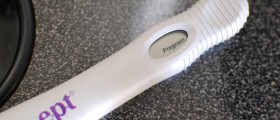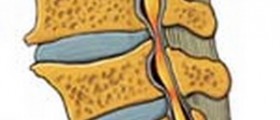
Many women suffer from menstrual cramps and for them it is a reality they have to face each month, which often becomes a true ordeal. Sometimes the cramps are particularly severe, often accompanied by other problems like headache, nausea, diarrhea, even fainting.
Cramps can last anywhere from 30 minutes to several hours, they can occur only on the first day of the period or every day until the menstrual flow is over. They can also occur a day or two before the period. Menstrual cramps are located in the lower abdominal area and in the lower back too.
Causes of severe menstrual cramps
Menstrual cramps or dysmenorrhea are caused by overproduction of prostaglandins in the body. The main role of prostaglandins is to regulate the involuntary muscles, like intestines, blood vessels and such, but when there is too much of them they can actually cause muscle contractions. When the uterus opens and closes to release blood, then its lining, which is called endometrium, releases prostaglandins and this leads to cramping.
There are two main types of menstrual cramps - primary dysmenorrhea and secondary dysmenorrhea.
In primary dysmenorrhea the cramping has always been present during the period and it is not connected to a gynecological problem. In secondary dysmenorrhea, the cramping is caused by an underlying condition, for example endometriosis, in which cells that belong to the endometrium appear outside of the uterus, for example on the ovaries.
Remedies for severe menstrual cramps
Sometimes the menstrual cramps can be prevented together with other symptoms of PMS, like bloating, headache and mood swings. Increasing the intake of calcium, magnesium, zinc and vitamins through the diet is one way to relieve both the PMS and the menstrual cramps.
When the cramps occur, it can help to sip warm drinks, especially herbal teas, or to apply heat pads or hot water bottle over the lower abdomen and the lower back. Lying on the side with the knees brought up to the chest is often helpful when the cramps attack.
Regular workout before the period and moderate physical activity, like walking, during the period, can significantly reduce the severity of the cramps.
However, natural methods and remedies are rarely effective for severe menstrual cramps. Those can only be relieved by taking non-steroidal anti-inflammatory drugs (NSAID), which are available without the prescription. Ibuprofen, naproxen and ketoprofen reduce the production of prostaglandins and therefore relieve the cramps.
Sometimes, if a woman frequently suffers from severe menstrual cramps, doctors prescribe oral contraceptives. These pills not only prevent undesired pregnancy, but they also normalize the cycle, regulate it, reduce the symptoms of PMS and prevent cramps.
















-Why-Some-Women-Take-This-Type-Of-Progesterone-During-Early-Pregnancy_f_280x120.jpg)
Your thoughts on this
Loading...